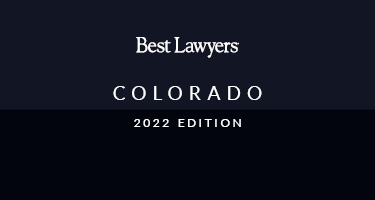In Texas, a trust can now last up to 300 years, thanks to a new law supplanting the venerable Rule Against Perpetuities. This puts a sharper edge on a common client problem: Can trusts be changed?
Trust rules are not carved in stone. No trust is immutable in a court of competent jurisdiction. Beneficiaries and assets change, outliving the purposes that a settlor may have foreseen. A trustee’s exercise of discretion always involves a gray area. Trusts serve people, not the other way around; they can be changed or terminated if necessary.
A trust, after all, is just a set of rules governing certain assets. Unlike corporations or partnerships, which the law regards as entities in themselves, trusts merely describe a relationship between people and an asset. A trustee (either a person or a bank, the latter known as a “corporate” trustee) applies rules to assets for the benefit of a person or cause. Those rules usually restrict distributions. Beneficiaries of the trust often don’t control how much or when they’ll receive anything; the trustee distributes assets, and the beneficiary receives them.
Many beneficiaries (and some trustees) end up growing dissatisfied with the restrictions. Clients often want more assets sooner, or even to terminate the trust entirely and secure possession of the assets outright. This may be impossible under the trust’s rules, which are often designed—as in the case of a “spendthrift” trust—to prevent exactly that. However, the trust may provide an express or implied authority for the trustee to distribute all assets to the point of termination.
A well-drafted trust anticipates this. Many lifetime trusts are revocable by design, meaning that the settlor (i.e., the person who created the trust and put the assets into it) can revoke the trust at any time and take the assets back. Yet even irrevocable trusts must have an end. For example, the trust may state that it may be terminated if the assets are no longer of sufficient value, rendering employment of a trustee uneconomical. If so, the trustee may terminate by making one final distribution. Or a beneficiary may have “power of appointment,” which can authorize him to direct distributions to himself or others under certain circumstances. Or power of termination might be implied in a distribution standard. For instance, the direction that assets “shall be distributed” may justify the total distribution of all trust assets if conditions warrant (e.g., for a grave health need) or if insufficient assets remain (e.g., if the trust requires that a flat, or “unitrust,” amount be distributed each year).

Even if the trust’s rules offer no way to get to the desired result, there is always the possibility of changing the rules altogether. This may be done by agreement or by court order.
As a practical matter, if all interested parties agree, almost anything can be done to a trust. “Interested parties” refers to anyone with a beneficial or legal relationship to the trust, whether present and actual or future and contingent. This includes all beneficiaries and the serving trustee. In theory, if the beneficiaries and trustee agree to change, or even disregard, trust rules, no one else has standing to complain. All sign an agreement to this effect, and the matter is done as agreed regardless of the trust’s rules. Of course, if not all interested parties are included, the agreement is effective only to those who sign, and a trustee would be unwise to rely on it. In charitable trusts—that is, those with some philanthropic purpose or beneficiary—state law can block the beneficiaries’ agreement. In many states, the charitable trust division of the state attorney general’s office protects the public’s interest in preserving charitable trusts and may intervene for that purpose.
Even if the trust’s rules offer no way to get to the desired result, there is always the possibility of changing the rules altogether.”
A court order is the surest way to change a trust’s rules. In addition to modification by agreement, the Uniform Trust Code permits modification or termination of a trust upon proof of unanticipated circumstances, for example, if its purpose becomes impossible to fulfill. This requires an interested party to file a lawsuit and prove to a court the facts supporting the modification. All interested parties must be served with citation (including the attorney general, if a charitable bequest is at stake) and have a right to appear and object. The court may appoint an attorney ad litem to represent minors or unborn beneficiaries in the proceeding. If parents are the present beneficiaries, they may be able to represent their children and other descendants by “virtual representation,” meaning they consent on behalf of younger or future generations. If, after hearing the evidence presented, the court finds the statutory conditions are met, the trust is modified by a judgment of the court—not even the objection of an interested person will prevent the modification. In many cases, attorneys’ fees and costs may be awarded in the court’s discretion to participating parties who prove their advocacy provided a service to the trust.
Finally, the application of a trust’s rules can be subject to dispute. To acquire more assets, a beneficiary may pressure a trustee—with or without court intervention—to act differently. For example, trusts often give a trustee discretion to decide how much to distribute for a beneficiary’s support. Technically, the trustee may have the right to withhold distributions even if the beneficiary thinks the trustee is too stingy. However, if the beneficiary can prove that the trustee is limiting distributions in bad faith or for an improper purpose, the trustee has breached his fiduciary duty.
Put another way, even a trustee who has discretion can still abuse that discretion. If the beneficiary can document his claim and present it convincingly through counsel in a demand, he may not even need to file suit to get the result he wants. Trustees, particularly corporate trustees, are by nature risk averse and eager to avoid litigation and public discord. In this way, even if a trust’s rules cannot be changed, their interpretation can be influenced to solve the client’s problem.
Joe Marrs of Marrs Ellis & Hodge LLP represents clients at trial and arbitration, trust, and will contests, as well as other complex disputes in the courts. Mr. Marrs is admitted to practice in the United States District Courts for the Northern, Southern, Eastern, and Western Districts of Texas. He is a member of the Probate Section of the Houston Bar Association and is a Fellow of the Texas Bar Foundation.
































